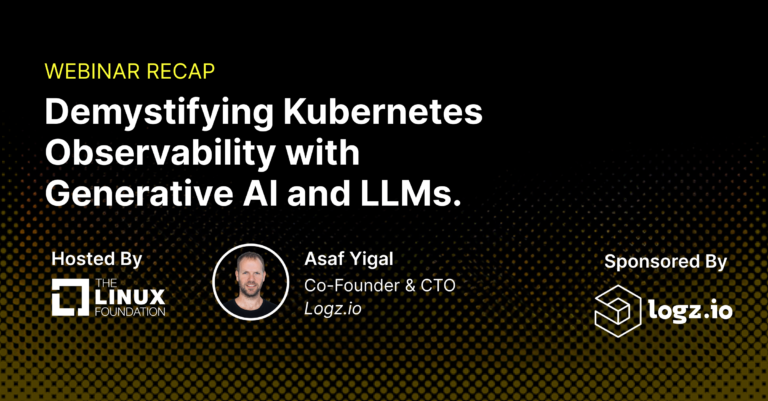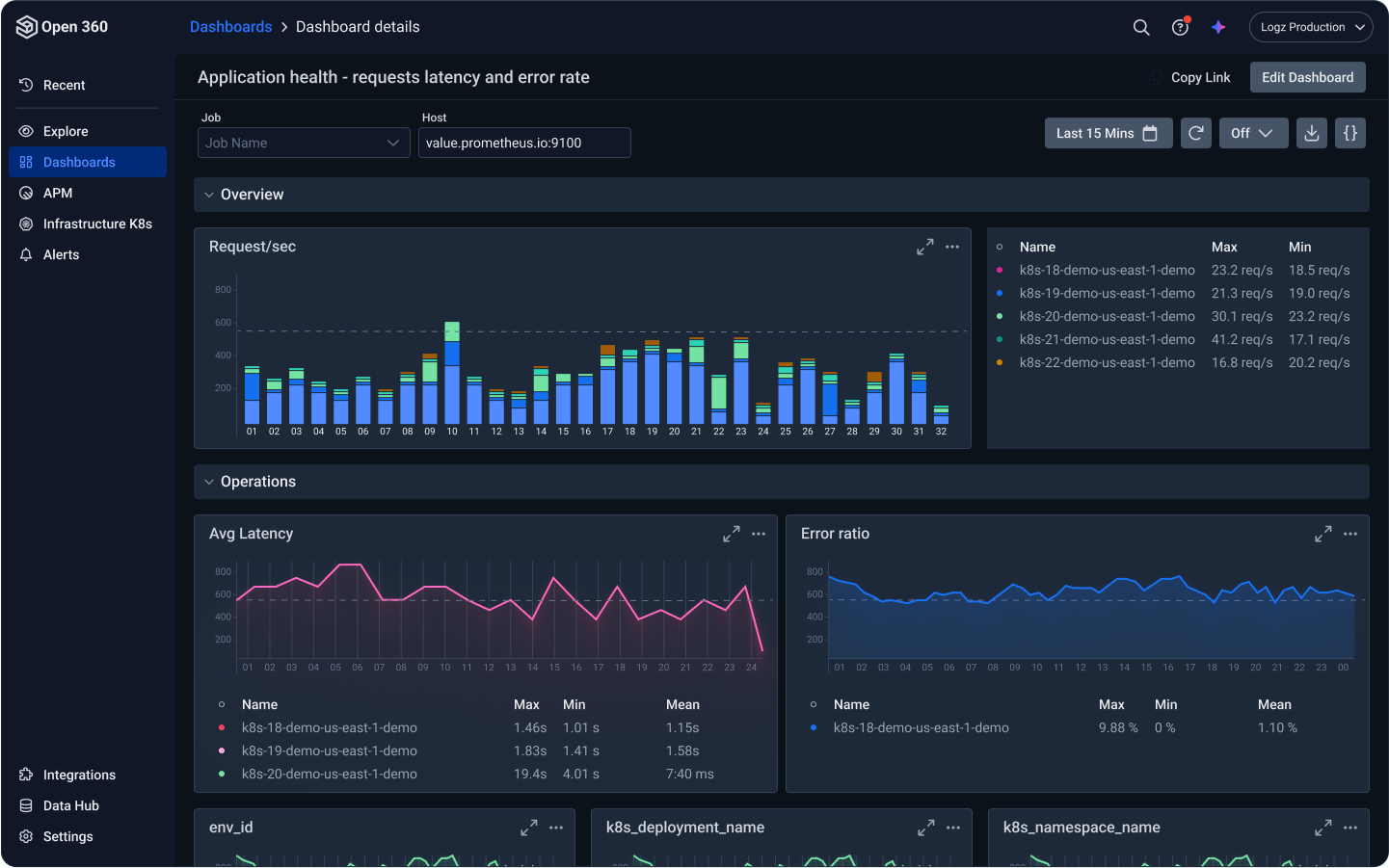
Demystifying Kubernetes Observability with Generative AI and LLMs
May 22, 2024

Generative AI and large language models (LLM) are fundamentally changing the way we interact with data, especially in the realm of Kubernetes and observability.
These technologies are reshaping our field, and there is a lot to understand and unpack so organizations like yours can make sense of it all. What data is important, and what isn’t? How can LLMs make my day-to-day easier, and what do I need to do to ensure I don’t get overwhelmed?
I recently presented a webinar on this topic: Demystifying Kubernetes Observability with Generative AI and LLMs, hosted by the Linux Foundation. I’ll sum up what was discussed here, but you can also watch the full replay of the webinar below:
LLMs and Gen AI’s Impact on Log Analytics, Pattern Recognition and Reporting
One of the core challenges in log analytics is recognizing different trends, patterns, and anomalies. LLMs excel at identifying these elements in real-time, which is far superior to traditional black box models. This real-time anomaly detection is a game-changer for observability, allowing us to catch issues as they happen.
Querying and generating visualizations for observability systems can be complex. LLM simplifies this process, enabling users to create searches and visualizations through natural language, making these tasks significantly easier and more intuitive.
Alert Management, Triage and Problem Solving with LLMs and Gen AI
LLMs can prioritize alerts, assess their severity, and triage them efficiently. You’ll have the ability to analyze patterns and trends to understand the importance of different events, improving the overall observability process.
You’ll also be able to use LLMs to aid in root cause analysis by running data sequences and analyzing complex systems. The models have predictive capabilities and provide valuable insights into potential issues, enabling proactive measures.
Generative AI can manage and simplify the vast array of systems and documentation, offering continuous learning and adaptation. This capability is crucial for keeping up with the dynamic and complex nature of modern environments.
Acting as a virtual assistant, LLMs can help solve problems collaboratively, recommend dashboards, and answer specific questions. This feature significantly enhances team efficiency and problem resolution.
Modern environments are becoming increasingly complex, driven by the need for flexibility, rapid development, and competitiveness. This complexity makes troubleshooting more difficult and time-consuming. Observability tools are evolving but often remain insufficient. Introducing LLM and generative AI can bridge this gap by simplifying interactions with complex data environments.
How We’re Using Generative AI and LLMs in Logz.io Open 360
At Logz.io, we’ve integrated LLMs into our Open 360™ observability platform to demonstrate its potential through our Observability IQ capabilities, including our new IQ Assistant. We’ve implemented an LLM-based feature in our App 360 solution that allows users to ask questions such as, “How’s the health of my service looking?”
The model analyzes available data and provides a concise, understandable summary. This capability extends to recommending alerts and visualizations, enhancing user experience and efficiency.
In Kubernetes environments, LLM can analyze YAML configurations and identify potential issues. Users can ask questions about their deployment, resource constraints, and security vulnerabilities, receiving instant, actionable insights.
The generative AI we’ve introduced into Open 360 also helps reduce observability costs by allowing data storage in lower-cost environments while maintaining the ability to query and analyze this data effectively. This cost-efficiency is crucial as observability data continues to grow.
A common concern with LLM is ensuring privacy and accuracy. Commercial implementations of LLM ensure that data remains private and secure. Moreover, the continuous improvement of these models is addressing issues of hallucination and data accuracy, making them reliable tools for observability.
If you’d like a first-hand look at how Observability IQ and Logz.io Open 360 can help transform your observability practice, sign up for a demo today.




